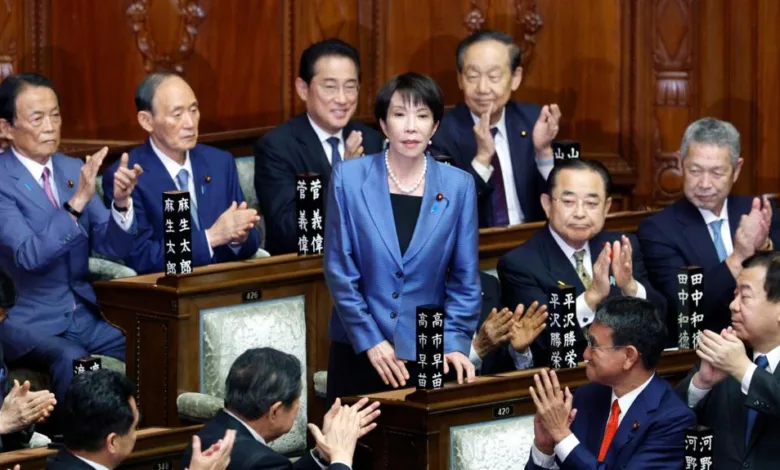Sanae Takaichi wins historic vote to become Japan’s first female prime minister

Japanese lawmakers have made history by electing Sanae Takaichi, a hardline conservative, as the nation’s first female prime minister in modern times, further solidifying Japan’s position as a key U.S. ally.
Takaichi, 64, the newly elected leader of the governing Liberal Democratic Party (LDP), won the position with a vote of 237-149 in the lower house of parliament, defeating her closest rival, Yoshihiko Noda, leader of the liberal opposition Constitutional Democratic Party.
In a second vote by upper house lawmakers, Takaichi secured 125 votes to 46, having narrowly missed a majority in the first round.
While her election marks a significant milestone in a country where women are severely underrepresented in government, Takaichi enters office facing numerous pressing challenges, including a visit by President Donald Trump next week.
Takaichi, a protege of the late former Prime Minister Shinzo Abe, champions a robust military, stringent immigration policies, and the revision of Japan’s pacifist constitution. As a seasoned politician, she has held various ministerial posts, including economic security, internal affairs, and gender equality.
Earlier this month, Takaichi was elected leader of the LDP, which has dominated Japan’s political landscape since World War II, following unsuccessful bids in 2021 and 2024.
In her victory speech, she reaffirmed her dedication to the role. “I myself will dispense with the notion of ‘work-life balance,'” Takaichi stated.
“I will work tirelessly, without reprieve.” However, her ascension to prime minister was cast into doubt after the centrist party Komeito withdrew from the LDP coalition.
To secure her victory, the LDP forged a deal with the Osaka-based Japan Innovation Party, or Ishin, on Monday, pulling its coalition further to the right.
Even with the alliance, Takaichi faces an uphill battle in parliament, where she falls short of a majority in both houses after the LDP suffered major losses in recent elections amid voter anger over party corruption scandals and the rising cost of living. Her premiership could thus end up being short-lived — much like that of her predecessor, Shigeru Ishiba, who was in office for a year.
“She emerges from this a diminished leader from the get-go,” said Jeff Kingston, a professor of Asian studies and history at Temple University’s Japan campus.
Takaichi also faces an early test next week with the arrival of Trump, who is making his first trip to Asia since returning to office. He is expected to visit Malaysia and Japan before continuing to South Korea, which is hosting a major summit of Asia-Pacific economies.
“She doesn’t have a whole lot of time to get ready for a slew of diplomatic activity,” Kingston said. “But I think job one is the Japanese economy.”
Source: NBC News

